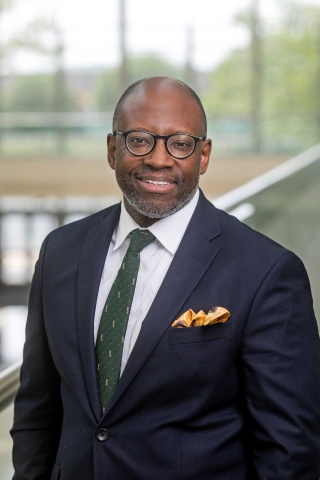“Black lives matter.” “All lives matter.” These slogans may forever summarize the deep tensions in American life in 2014. Catalyzed by the deaths of Michael Brown, Eric Garner, and two New York police officers who were murdered while sitting in a police car, Americans are in the midst of a crisis of human dignity. Are we still able to articulate why anyone’s life matters? We can loudly protest that “black lives matter,” but it will mean nothing in the long run if we cannot explain why black lives matter.
Having desiccated our shared anthropology to the point that people are defined by the pursuit of individualistic and depersonalized rights, Americans can no longer ontologically justify the claim that anyone is worthy of dignity, love, and respect. In the current crisis, we are left to reduce some of our neighbors to depersonalized nouns: “suspect,” “thug,” “criminal,” “felon,” or “cop.” This type of depersonalization is the gateway to dehumanization, because it gives us permission to suspend the requirement to treat people with dignity, even if they have broken the law.
Black lives matter because black people are persons. One of the greatest tragedies in American history was the myth that America could flourish without blacks flourishing as persons. From the founding of this country, throughout slavery, Reconstruction, the eugenics movement, and the civil rights movement, black Americans fought to establish themselves, first and foremost, as persons. At minimum we can define persons as centers of creativity, self-transcendence, communication, morality, self-direction, responsibility, choice, freedom, and spirituality, who come to know themselves in union and communion with the Triune God and other personal selves. Persons are simultaneously unrepeatable splendors with great capacity for good and also vulnerable to disordered loves that can lead to profound evil. Not only do they need moral formation; moral norms ought to shape how we structure the elements of justice in politics, jurisprudence, and the marketplace.
One of the greatest contributions that Christianity made to the world was to provide an ontological justification for human dignity and human rights. Black life matters because black people have been called to a vocation — to attain the end for which they were created in union and communion with others persons who have the same calling. Today, humans are reduced to depersonalized, abstract individuals possessing “rights” to be asserted and acquired for the purpose of self-actualization with little to no regard for the other. In a depersonalized, individualistic society people could not care less about the flourishing of their neighbors. What matters is the consumeristic flourishing of the self in a morally relativistic pursuit of desired passions. Too many Americans do not know how to distinguish between rights and passions.
In a culture that has done all it can to expunge moral virtue from the aspirations of human life, why are we surprised that we are shouting, “Black lives matter?” When human persons are not expected to be in communion with God and others, why are we surprised that the reverence due to the human person is lost? Black lives matter because persons are not autonomous, self-contained, individualistic creatures who do not need others for their flourishing. Black lives matter not simply because they are black but because blacks are persons — persons who are a necessary variable to the flourishing of others so that we all may attain the end for which we were created.
As we move into 2015, the fact remains that in order for there to be sustainable peace and justice following the events in Ferguson and New York City — that is, if we truly want to heal the wounds that divide us — we must first understand and what it means to be human. As Dr. Martin Luther King observed, “[E]very human life is a reflection of divinity, and ... every act of injustice mars and defaces the image of God in man.” Advocating for black life without a moral basis is throwing sand into the wind.







